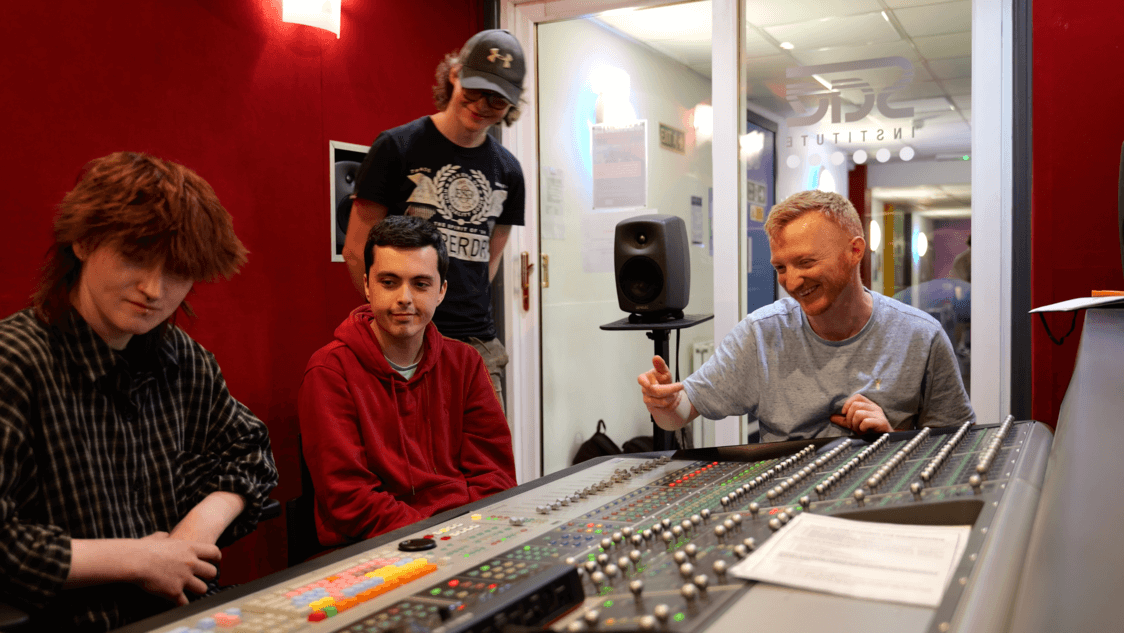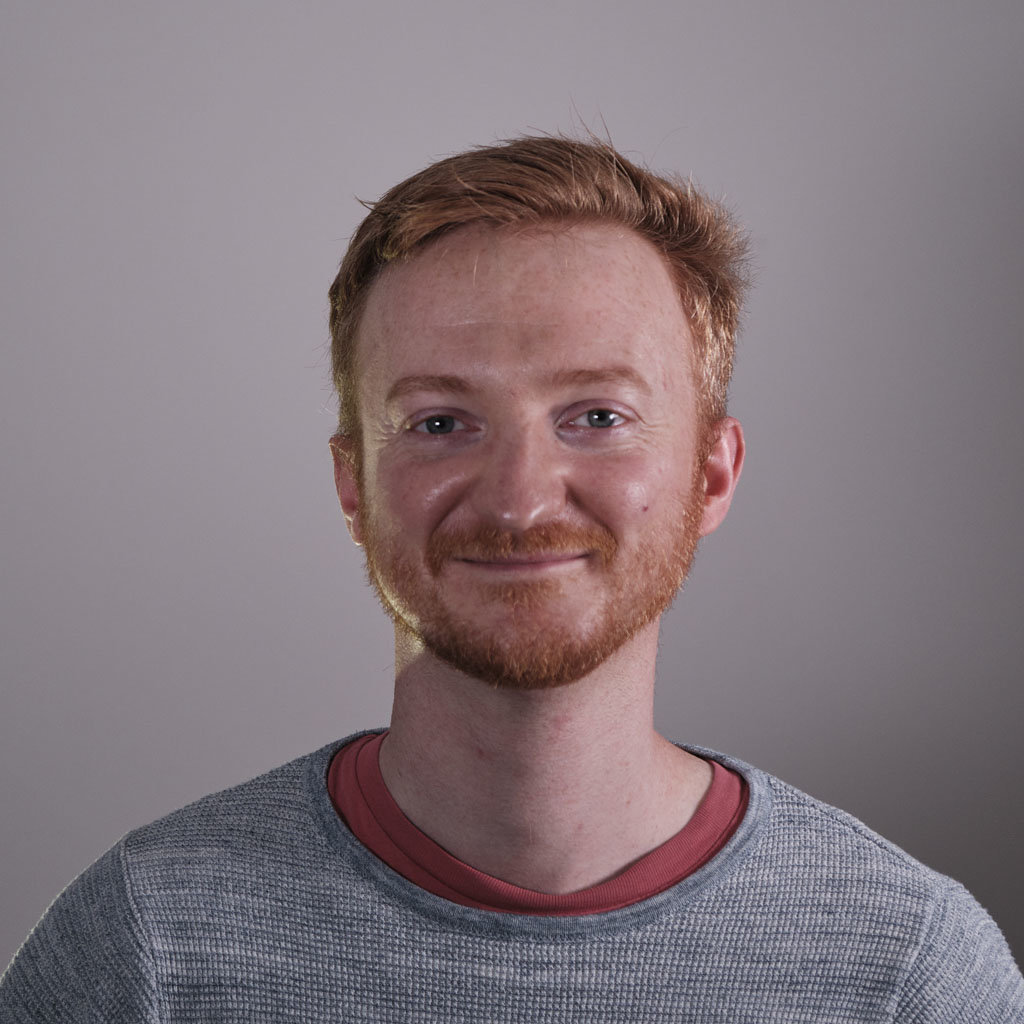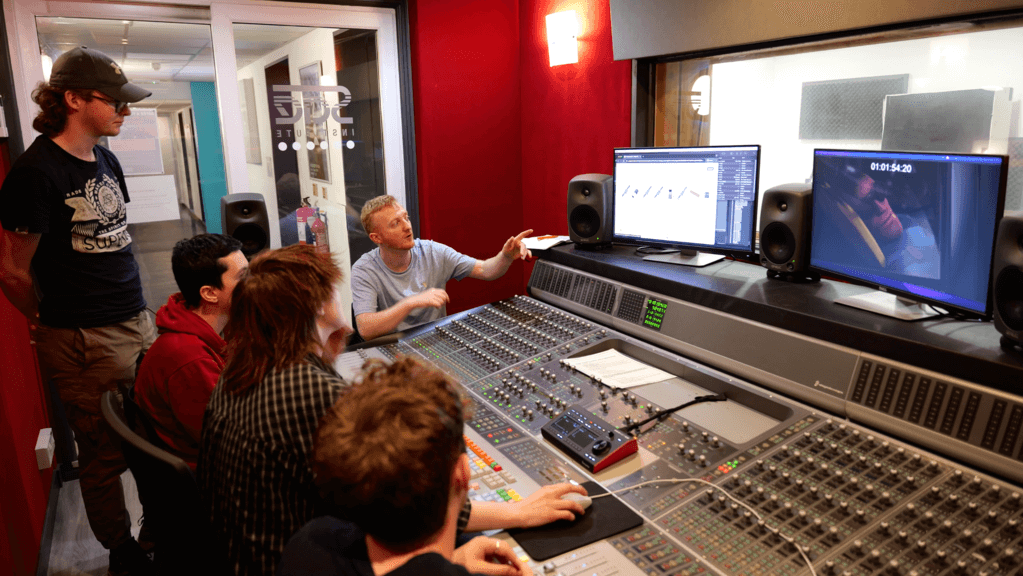SAE Audio Production Lecturer Craig Hamilton is based at our Glasgow campus and was previously a student with us.
After completing the course at SAE he joined Waterfront Studios as Head of Commercial Production and worked in Cava Sound Studios.
Craig then returned to SAE Glasgow as an Audio Production lecturer in 2008.
Alongside his teaching with us, Craig has continued to work as freelance audio engineer, recording artists and also performing. Read our interview below – if you’d like to join our Audio Production course, then get in touch with our team now.
What makes the SAE AUDIO production course special?
One of the benefits of studying at SAE is the practical nature of our course. We get our students to work with software straight away and move into hardware pretty early on. Whether it’s for music production, sound for film, sound for games, or even live sound, our students are engaged in hands-on projects.
They are supervised and encouraged to work on additional projects outside of class time using all the hardware we have. This practical approach ensures that when students graduate, they have the skills, experience, and portfolio needed to work for someone or even be self-employed.
Can you elaborate more on the Audio Production course?
Yes, on this course we focus on different areas at different times. For instance, in music production, we get the students to form a class band, record different instruments, and explore various production techniques. Eventually, we move into the editing and mixing processes.
Students get to use hardware they might not be able to afford at home, which prepares them for working in professional studios.
In film sound, it’s exciting to go on location, work with Film Production students to capture audio, and then bring it back for post-production, sound design, and ADR.
We teach all of this practically, spending a lot of time on the mechanics and workflows of the course.
Can you give examples of cross-program collaboration?
There are several opportunities for cross-program collaboration at SAE.
One fun example is our live lounges. Music Business students find the artists, Audio Production students handle the live sound setup, and Film Production students film the event. This collaboration prepares students for industry scenarios where they need to
work with professionals from different fields.
By working together on projects like this, they build connections and gain experience that can be invaluable after graduation.
Can you give us any examples of industry connections or partnerships that have contributed to the course?
We have strong industry links that benefit our students. For example, we have a partnership with Blazing Griffin, a company specialising in audio post-production for film, animation, and adverts.
Our students do placements there, gaining valuable experience working with industry professionals.
Another example is a charity event at the Barrowlands where students filmed gigs, captured audio, and edited the footage for the charity to use.
These real-world experiences are crucial for students as they prepare for their careers.
What are the career paths and opportunities for students studying the Audio Production course?
Our students have gone on to achieve great career opportunities. Many have secured jobs at companies like the BBC and No Code Games, while others have started their own recording studios or become self-employed.
We’ve seen students work in various roles, from sound design for games and film to live sound engineering. It’s rewarding to see them flourish and continue to collaborate with peers they met during their studies.
What was your most rewarding moment about teaching at SAE?
It’s very rewarding to see students progress from knowing nothing about the industry to creating impressive work. Watching their journey from learning the basics to producing professional-quality music, film sound, or game audio is incredible. I also love seeing students in the studios, recording and mixing, reminding me of my own student days.
Additionally, attending gigs and events where former students are working and seeing them succeed in their careers is a great feeling.
What is the best piece of advice you would give to someone looking to start their career in Audio Production?
My best piece of advice is to do a bit of research. Look into your favorite artists, films, or games and find out who was involved in the sound production. Get nerdy about the mechanics and the creativity behind it. It’s also important to talk to musicians and industry professionals to understand their decision-making processes. Dedicate time to both the technical and creative aspects of the industry.
It’s a very creative and technical field, so be prepared to invest time and effort into mastering both.
Study Audio production at SAE
At SAE, our Audio Production Degree can help students learn the latest production skills and techniques to further their careers.
Our course encourages students to adopt a future-facing mindset where they are keen to understand more about how innovation and technology will shape the industry and their work.

































